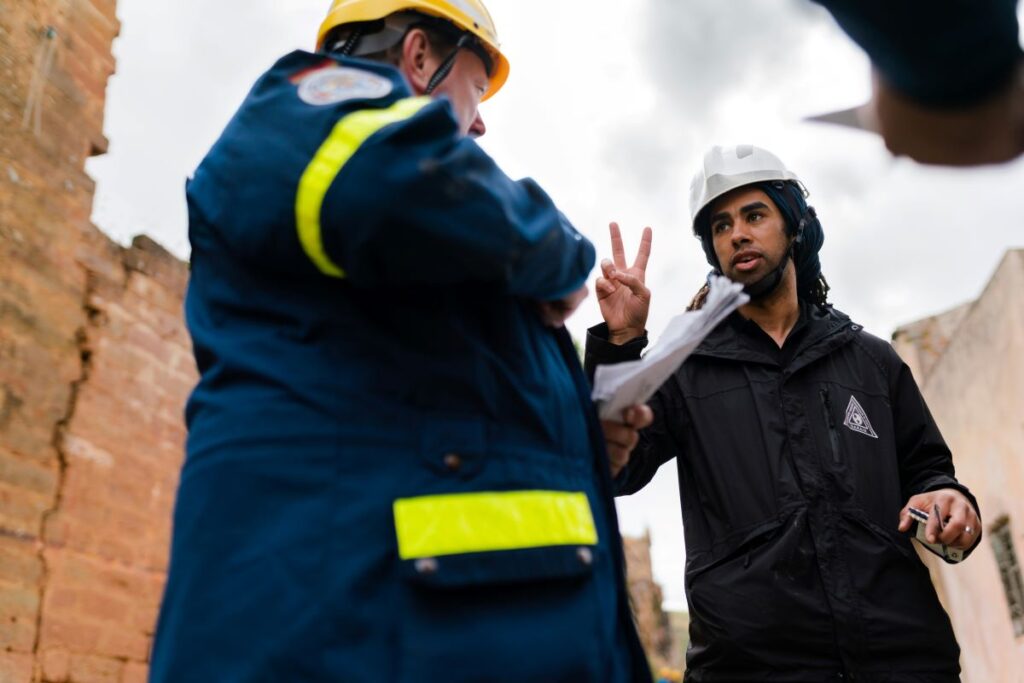Engineering surveys play a crucial role in the successful execution of roadworks and transport planning. These surveys provide essential data that informs decision-making, enhances safety, and optimises resource allocation. In an era where infrastructure demands are ever-increasing, understanding the benefits of these surveys is paramount for engineers, planners, and stakeholders alike.
Understanding Engineering Surveys
Engineering surveys encompass a range of activities aimed at collecting data about the physical characteristics of a site. This includes topographical surveys, geotechnical investigations, and environmental assessments. Each type of survey serves a specific purpose, contributing to a comprehensive understanding of the area in question.
Types of Engineering Surveys
There are various types of engineering surveys that cater to different aspects of roadworks and transport planning. Topographical surveys map the terrain, providing crucial information about elevations, slopes, and natural features. Geotechnical surveys assess soil conditions, which are vital for determining the stability of structures and the suitability of materials used in construction.
Environmental assessments evaluate the potential impacts of roadworks on local ecosystems, ensuring compliance with environmental regulations. By integrating these surveys, planners can create a holistic view of the site, leading to more informed decisions. Additionally, hydrological surveys may be conducted to understand water flow and drainage patterns, which are essential for preventing flooding and ensuring the longevity of infrastructure. These surveys often involve the study of existing water bodies and their interaction with the surrounding landscape, providing insights that are crucial for sustainable development.
The Survey Process
The process of conducting engineering surveys typically involves several stages. Initially, planning and preparation are key, where survey teams define objectives and methodologies. Next, fieldwork is conducted, employing advanced technologies such as GPS and 3D scanning to gather accurate data.
Once data collection is complete, the information is analysed and interpreted. This analysis forms the basis for reports that guide design and construction processes. The entire survey process is critical in minimising risks and ensuring that projects are completed on time and within budget. Furthermore, the integration of software tools for data modelling and visualisation has revolutionised the way survey data is presented, allowing stakeholders to engage with the information more effectively. By utilising Geographic Information Systems (GIS), planners can overlay various data sets, such as demographic information and land use patterns, facilitating a more comprehensive understanding of the project’s context and potential challenges.
Enhancing Safety and Compliance
Safety is a primary concern in any roadworks project. Engineering surveys contribute significantly to enhancing safety by identifying potential hazards before construction begins. By understanding the terrain and subsurface conditions, engineers can design safer road layouts and implement appropriate safety measures.
Identifying Hazards
Surveys help in identifying various hazards, such as unstable soil, waterlogged areas, or nearby structures that may pose risks during construction. By addressing these issues early on, engineers can mitigate risks and ensure the safety of both workers and the public.
Additionally, compliance with local regulations and standards is crucial in roadworks. Engineering surveys provide the necessary documentation and data to demonstrate adherence to safety and environmental guidelines, thereby reducing the likelihood of legal issues arising during or after the project. This compliance not only safeguards the project but also fosters trust within the community, as residents can feel assured that their safety is a priority.
Furthermore, the process of conducting these surveys often involves collaboration with local authorities and environmental agencies. This engagement can lead to a more comprehensive understanding of the area’s unique challenges and requirements, ensuring that the project aligns with broader community goals and sustainability efforts.
Improving Traffic Management
Effective traffic management is essential for minimising disruptions during roadworks. Engineering surveys provide data that helps in planning detours, signage, and other traffic control measures. By analysing traffic patterns and volumes, planners can design strategies that keep traffic flowing smoothly, even amidst construction activities.
Moreover, understanding the existing road infrastructure allows for better integration of new works with current systems, leading to enhanced overall efficiency in transport planning. This integration is particularly important in urban areas where road space is limited and the impact of roadworks can be felt more acutely. By utilising advanced modelling techniques, engineers can predict the potential effects of construction on traffic flow, allowing for more informed decision-making and timely adjustments to plans as necessary.
In addition, the use of technology such as real-time traffic monitoring systems can further enhance traffic management during roadworks. These systems can provide immediate feedback on traffic conditions, enabling quick responses to unforeseen issues such as accidents or unexpected congestion. This proactive approach not only improves the experience for road users but also contributes to overall road safety by reducing the likelihood of bottlenecks and related incidents.

Optimising Resource Allocation
Resource allocation is a critical aspect of any construction project. Engineering surveys enable planners to make informed decisions regarding the allocation of materials, labour, and equipment. By understanding the specific needs of a project, resources can be allocated more efficiently, reducing waste and minimising costs.
Cost-Effective Solutions
By identifying the most suitable construction methods and materials through detailed surveys, projects can be executed more cost-effectively. For instance, understanding soil conditions can inform decisions about the type of foundation required, potentially saving significant costs on unnecessary excavation or reinforcement.
Furthermore, accurate surveys help in estimating project timelines more effectively. When planners have a clear understanding of the site conditions, they can create realistic schedules that account for potential challenges, thereby reducing the likelihood of costly delays.
Enhancing Project Management
Effective project management relies heavily on accurate data. Engineering surveys provide the foundational information that project managers need to oversee construction activities. With precise data at their disposal, managers can track progress, monitor compliance, and make adjustments as necessary.
This level of oversight ensures that projects remain on track and within budget, ultimately leading to successful outcomes. The integration of engineering surveys into project management processes can significantly enhance the overall efficiency and effectiveness of roadworks. Click here to get more about What Surveying Engineering Means for Long-Term Site Accuracy
Supporting Sustainable Development.
As the world increasingly focuses on sustainability, engineering surveys play a vital role in supporting environmentally friendly transport planning. By assessing the potential impacts of roadworks on the environment, planners can make informed decisions that prioritise sustainability.
Environmental Impact Assessments
Environmental impact assessments (EIAs) are a critical component of transport planning. Engineering surveys provide the necessary data to conduct these assessments, evaluating how proposed roadworks may affect local ecosystems, air quality, and noise levels.
By identifying potential negative impacts early in the planning process, engineers and planners can develop mitigation strategies that minimise harm to the environment. This proactive approach not only benefits the ecosystem but also enhances the public perception of infrastructure projects.
Promoting Eco-Friendly Practices
Incorporating eco-friendly practices into roadworks is essential for sustainable development. Engineering surveys can identify opportunities for using sustainable materials and construction methods, such as recycled materials or low-impact construction techniques.
Moreover, these surveys can inform the design of green spaces, pedestrian pathways, and cycling infrastructure, promoting alternative modes of transport that reduce reliance on cars. By prioritising sustainability in transport planning, communities can benefit from improved air quality and enhanced quality of life.
Facilitating Stakeholder Engagement
Effective communication and engagement with stakeholders are crucial in any infrastructure project. Engineering surveys provide valuable data that can be shared with stakeholders, including local communities, government agencies, and environmental groups. This transparency fosters trust and collaboration, ultimately leading to better project outcomes.
Building Community Trust
When communities are informed about the potential impacts of roadworks, they are more likely to support the project. Engineering surveys can be used to create visual representations of proposed changes, helping stakeholders understand the benefits and potential challenges of the project.
Engaging with the community early in the planning process allows for feedback and input, which can be invaluable in shaping the final design. This collaborative approach not only builds trust but also ensures that the project meets the needs and concerns of local residents.
Collaborating with Government Agencies
Collaboration with government agencies is essential for successful transport planning. Engineering surveys provide the data needed to demonstrate compliance with regulations and standards, facilitating smoother interactions with authorities.
By presenting accurate and comprehensive survey data, planners can expedite the approval process and secure necessary permits. This collaboration ultimately leads to more efficient project delivery and a greater likelihood of success.

Conclusion
The benefits of engineering surveys for roadworks and transport planning are manifold. From enhancing safety and compliance to optimising resource allocation and supporting sustainable development, these surveys are integral to the successful execution of infrastructure projects. By investing in thorough engineering surveys, stakeholders can ensure that roadworks are completed efficiently, safely, and in a manner that meets the needs of the community and the environment.
As infrastructure demands continue to grow, the importance of engineering surveys will only increase. Embracing these practices not only leads to better project outcomes but also contributes to the creation of a more sustainable and efficient transport network for future generations.
